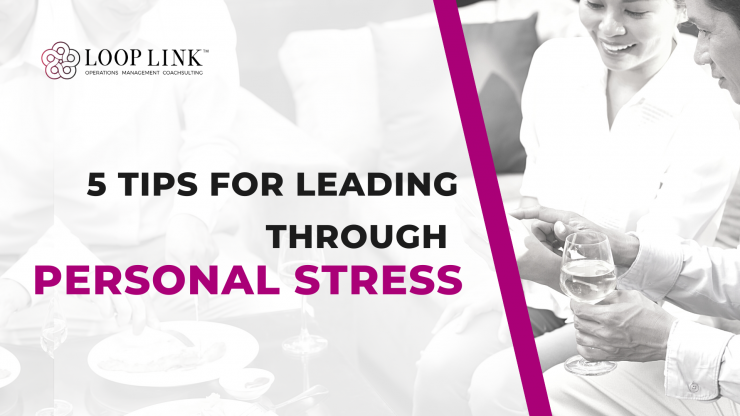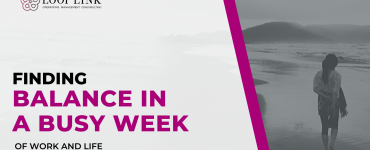Stress is a pervasive problem in today’s world. In fact, in a recent study, 48 per cent of Canadians reported feeling stressed regularly or all of the time.
When we experience personal stress on a consistent basis it can significantly impact our ability to thrive—especially at work. As CEOs and agency owners, we often convince ourselves that we can separate our personal lives from our professional ones, but when stress reaches chronic levels this becomes incredibly difficult.
So, what is a leader to do? Our businesses rely on us. We need to be present to make major operational decisions, uphold our mission and vision, and provide strategic guidance.
Recently, I found myself in the midst of this very dilemma, and I learned a lot about leading through personal stress.
Today, I want to pass those lessons onto you.
What is Personal Stress?

First, it’s important to understand that there are a wide range of circumstances and experiences that can lead to chronic levels of personal stress.
These include, but are not limited to, the following:
- Divorce
- The death of a loved one
- Financial difficulties
- Major personal injury or illness
- Legal issues
- Pregnancy or new parenthood
- Political or economic unrest (media overload, loss of faith in humanity, etc.)
- Environmental disasters (floods, forest fires, etc.)
What triggers a stress response in one individual may not trigger the same response in another person. There are a number of factors that contribute to how we process and react to stressors in our lives.
It is critical to never feel shame about being overwhelmed by stressful life events.
The Link Between Personal Stress and Professional Performance
It is a scientific fact that personal stress impacts our ability to perform well in the workplace. More specifically, 56 per cent of surveyed employees experiencing stress and anxiety said it affects their job performance, and half reported a negative impact on relationships with coworkers and peers.
For CEOs, these implications are often intensified, as their roles and responsibilities are even more demanding. It is far more difficult to replace a CEO or find an adequate stand-in while they temporarily step away, and their absence can lead to significant high-level complications. This knowledge alone can often be enough to amplify feelings of stress, worry, and guilt.
Tips For Leading Through Personal Stress
If you are looking for ways to minimize the effects of stress on leadership performance, I highly encourage implementing the following strategies:
1. Stop Avoiding and Start Addressing
One of the most critical steps to coping with stress as a CEO is actually acknowledging the reality of your situation. We can not find solutions to problems we aren’t admitting to. Write down the three most stressful aspects of your life. What behaviors or factors worsen each stressor? What alleviates the stress? Identifying the source of stress is the first step to resolving it.
2. Protect Your Peace
We can not focus and be productive when we are surrounded by distractions and noise. When leading through personal stress, we must find as much time for solitude and clarity as possible. Set “do not disturb” times each day where you can focus on greater strategic goals without interruption. Avoid electronic devices for one hour before bed. Schedule designated time for family, therapy, or other activities that will benefit your personal life. Do not compromise on these commitments.
3. Assemble an All-Star Team
Coping with stress as a CEO is not a solo endeavor. We need team members we can trust and rely on to get us through times of turbulence. But first, we need to determine what tasks we’re holding onto that can be passed on to capable hands. Assess your current workload and identify at least three responsibilities that you can confidently let go of. Who would be best suited to manage them moving forward? What training materials or resources could you provide to make the transition easier? Can you outsource these tasks to a freelancer or contractor? The sooner you put your all-star team in place, the sooner you can master how to prevent personal stress from impacting work performance.
Leadership is an enormous responsibility at the best of times. Leadership in times of stress can be downright exhausting. We must be our own greatest advocates and prioritize stress management immediately.
Because we can only make strides as CEOs when we are showing up as our highest selves.
Your Move
Could you use a little help RECONNECTING with your purpose, REFINING your processes, and REGAINING control as a leader? This could be the perfect solution for you.
Come over to our Free Exclusive Community where you can find support from other CEOs on the same journey.





